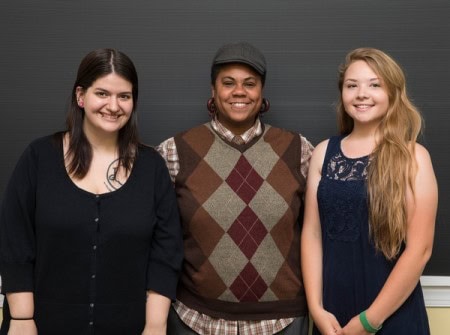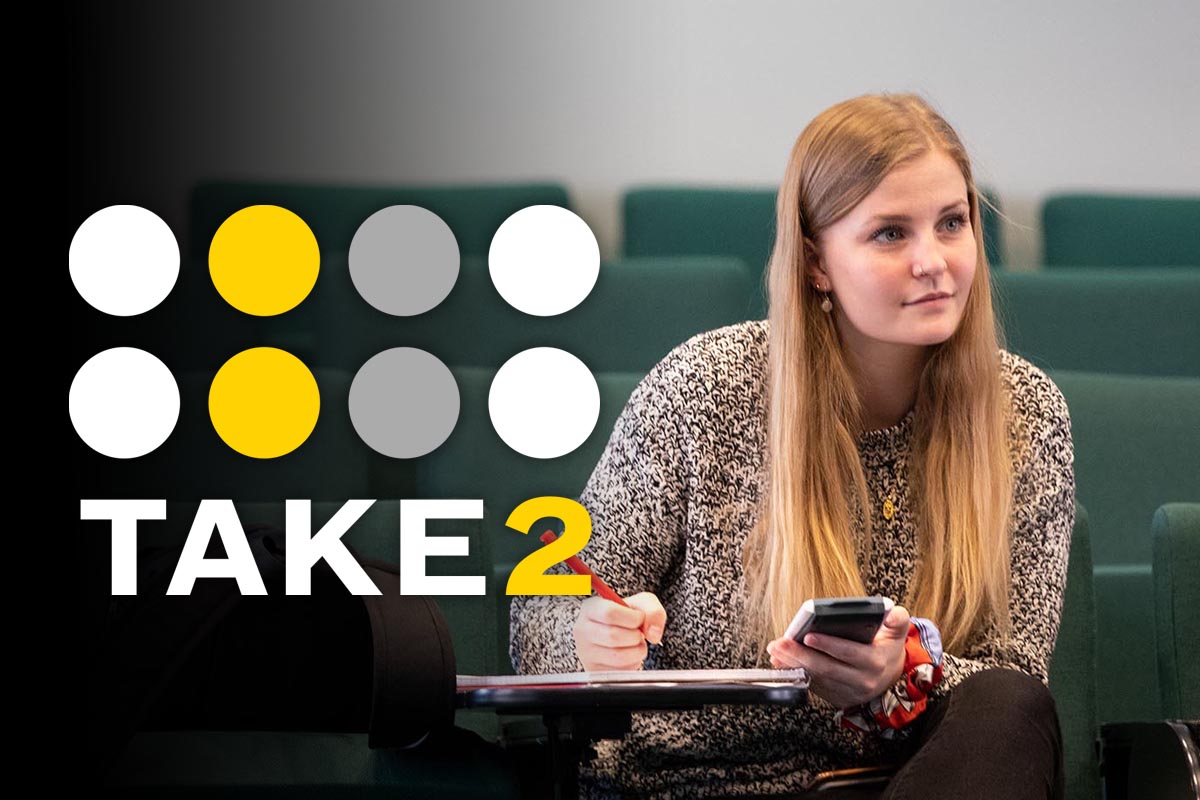Summer Research explores links between food access and incarceration

Jan Cornell ’17, communication studies professor J. Nikol Beckham, and Alexandra Wieczorek ’19.
For two years, communication studies professor J. Nikol Beckham has helped inmates earn their associate’s degrees at the Fluvanna Correctional Center for Women. This summer, she and two Randolph students are combining her interest in food deserts and her passion for helping those who are incarcerated with a Summer Research project looking at nutritional education at state correctional facilities.
Jan Cornell ’17 and Alexandra Wieczorek ’19 have partnered with Beckham on the Summer Research project, “Correctional Food Deserts: Defining the Problem and Designing Interventions.” As part of Beckham’s ongoing research on the subject, the group is examining food deserts—urban areas with limited access to affordable, quality foods—in the cities of Lynchburg, Hampton, and Manassas. They are using U.S. Census records to compile and compare data in each city, and determine if incarceration rates are higher in areas designated as food deserts.
The group is also examining the concept of deprivation amplification—a process by which conditions of low-access and disadvantage are further complicated by the challenges posed by problematic food systems. In an effort to address those issues, they are exploring the feasibility of starting a food-based education program at the Fluvanna Correctional Center for Women.
“If you look at people going into and coming out of prison, there really is a cycle of impoverishment and incarceration,” Beckham said. “Food affects people in this cycle on so many levels, from physical health to mental health and general well-being, so thinking about food is a good place to start when looking at the whole collection of problems with correctional systems and re-entry into society.”
Both Cornell and Wieczorek bring different skills to the project. A psychology major, Cornell plans a career as a children’s advocate, and hopes to one day work with juvenile offenders.
“I’m generally interested in social justice, the human struggle, and trying to make positive changes in the world,” Cornell said. “This is giving me valuable experience.”
Wieczorek is earning a double major in communication studies and political science, and also has a passion for social justice.
“Since I’m in the Class of 2019, I tell people I don’t have 2020 vision,” she laughed. “But realistically, I’d like to go into journalism, particularly broadcast journalism, and be able to use both my journalism and political science background. I think having experiences like this are really helping to build my world view.
“All the writing I’m doing is going to be key for my future,” she added. “And figuring out government policies with Dr. Beckham is also something I’ll be able to utilize in my field.”

Fluvanna Correctional Center for Women

